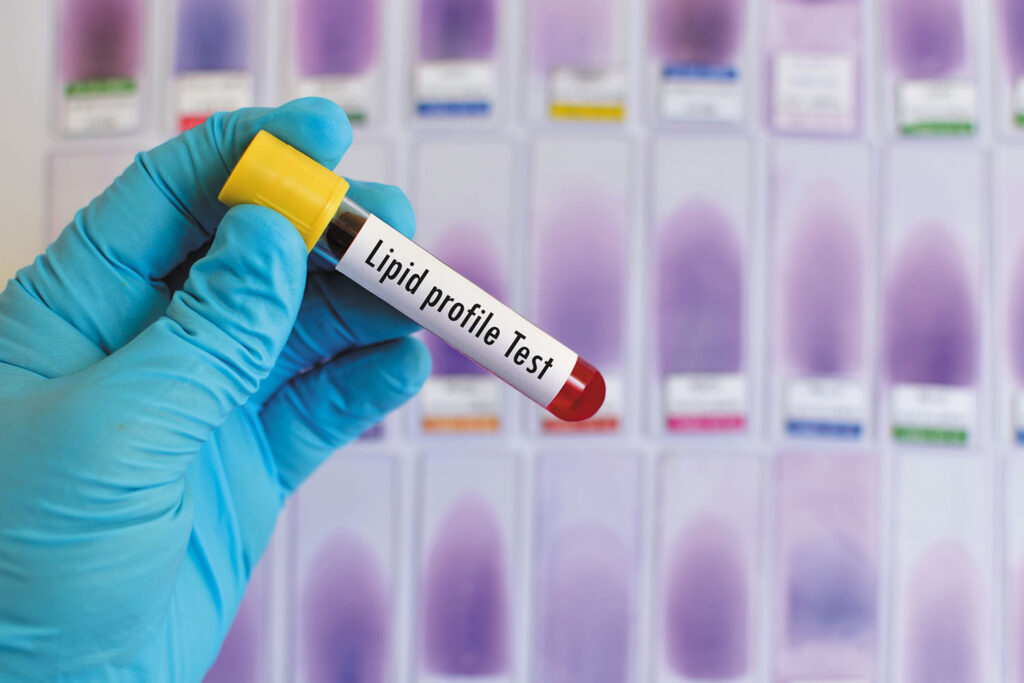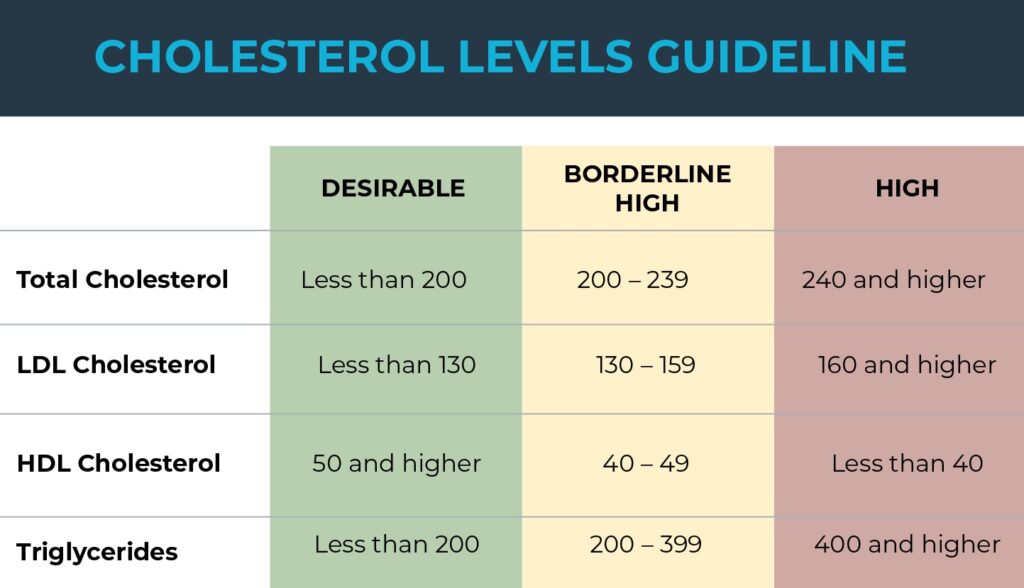Cholesterol is transported through the bloodstream and is regulated by the liver. It is essential to monitor your cholesterol levels regularly. High cholesterol hasn’t any signs or symptoms. In this context, high cholesterol levels are often called “the silent killer”. It’s probably fine to check your cholesterol levels at least once every five years. Depending on your age and gender, you may lower your chances of getting heart disease and stroke in case of regularly monitoring it.
Keep an eye on your cholesterol, especially if you have any of these risk factors:
- be at the age of over 40,
- Smoke, consume alcohol,
- have coronary heart disease or diabetes,
- have had a stroke or mini-stroke,
- have chronic kidney disease,
- be physically inactive,
- genetic factors,
- family history of cardiovascular disease,
- obesity and overweight, etc.

To measure cholesterol levels, you just need to contact the health care team and do a simple blood test known as “lipid profile”. Highly recommended to not eat or drink for eight to twelve hours before your cholesterol test.
It’s crucial for your health to know your cholesterol levels. If your cholesterol level is less than a hundred and thirty milligrams per deciliter (mg/dL), then you have LDL or bad cholesterol. HDL or good cholesterol levels are more or equal to fifty mg/dL. Another fat called triglycerides levels should desirable be less than two hundred mg/dL. Besides, they have an effect on your heart health.

Find more information about cholesterol desirable, borderline high and high levels in the below image.
If you have any difficulties in remembering these metrics, your health care team can explain the meaning of the numbers.
As mentioned above people in their forties are more likely to have fluctuating cholesterol. Thus, you may be interested in whether children may have bad cholesterol. The answer is yes, it’s possible for some reasons. They are at high risk for having high cholesterol levels if they are inactive, overweight, obese, or have a family history of high cholesterol.
Avoiding cholesterol
Therefore, there are some simple steps you can take to control your cholesterol such as
1.Be more active – walk, do exercises, daily workouts,
2.Add more healthy fats instead of saturated fatty foods, such as avocados, nuts, seeds, eggs, etc,
3.Eat more fruits, vegetables, and, of course, heart-healthy foods,
4.Choose foods rich in omega-3 fatty acids and soluble fiber,
5.Quit smoking and limit alcohol.
To sum up, consider eating antioxidant-rich foods, avoiding a harmful diet, as well practicing good habits for a heart-healthy lifestyle.
Get your cholesterol checked and accordingly recommended treatment approaches by Dr.G Health. He is always on call for new patients with high/bad cholesterol levels as well as for helping others to maintain good cholesterol.







